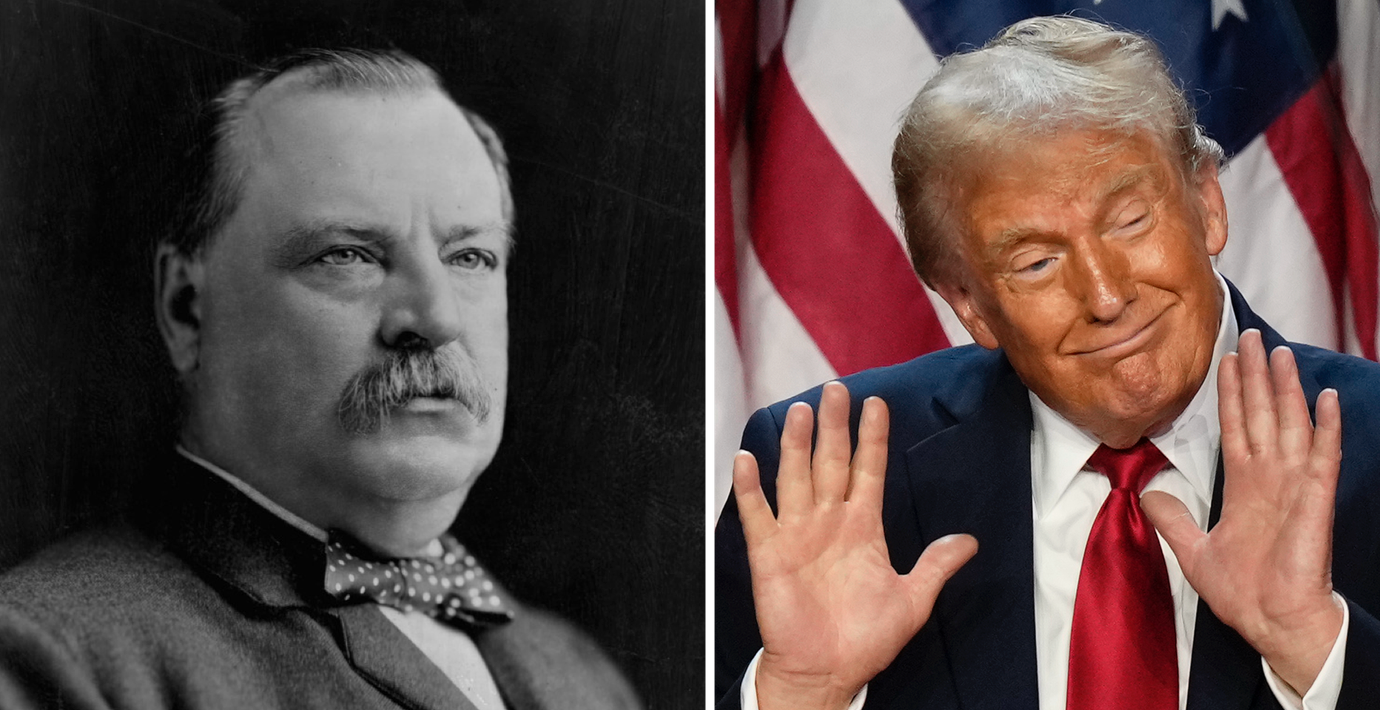bakgrund
Grover Cleveland
Wikipedia (en)
Stephen Grover Cleveland (March 18, 1837 – June 24, 1908) was the 22nd and 24th president of the United States, serving from 1885 to 1889 and from 1893 to 1897. He was the first Democrat to win the presidency after the Civil War and was one of two Democratic presidents, followed by Woodrow Wilson, in an era when Republicans dominated the presidency between 1869 and 1933. Cleveland won the popular vote in three presidential elections: 1884, 1888 and 1892. In 1888, Benjamin Harrison won the electoral college vote, and thus the presidency, in 1888, before Cleveland won the electoral college in 1892, making Cleveland the first U.S. president to serve non-consecutive presidential terms.
Cleveland was elected mayor of Buffalo in 1881 and governor of New York in 1882. While governor, he closely cooperated with state assembly minority leader Theodore Roosevelt to pass reform measures, winning national attention. He led the Bourbon Democrats, a pro-business movement opposed to high tariffs, free silver, inflation, imperialism, and subsidies to businesses, farmers, or veterans. His crusade for political reform and fiscal conservatism made him an icon for American conservatives of the time. Cleveland also won praise for honesty, self-reliance, integrity, and commitment to the principles of classical liberalism. His fight against political corruption, patronage, and bossism convinced many like-minded Republicans, called "Mugwumps", to cross party lines and support him in the 1884 election. After losing the 1888 election to Harrison, he moved to New York City and joined a law firm. The 1892 election restored him to the White House. As his second administration began, the Panic of 1893 sparked a severe national depression. Many voters blamed the Democrats, opening the way for a Republican landslide in 1894 and for the agrarian and silverite seizure of the Democratic Party in 1896. An anti-imperialist, Cleveland opposed the push to annex Hawaii, launched an investigation into the 1893 coup against Queen Liliʻuokalani, and called for her to be restored.
Cleveland was a formidable policymaker, but also garnered criticism. He intervened in the 1894 Pullman Strike to keep the railroads moving, angering Illinois Democrats and labor unions nationwide; his support of the gold standard and opposition to free silver alienated the agrarian wing of the Democrats. Critics complained that Cleveland had little imagination and seemed overwhelmed by the nation's economic disasters—depressions and strikes—in his second term. Even so, his reputation for probity and good character survived the troubles of his second term. Biographer Allan Nevins wrote, "[I]n Grover Cleveland, the greatness lies in typical rather than unusual qualities. He had no endowments that thousands of men do not have. He possessed honesty, courage, firmness, independence, and common sense. But he possessed them to a degree other men do not." By the end of his second term, he was severely unpopular, even among Democrats.
After leaving the White House, Cleveland served as a trustee of Princeton University. He continued to voice his political views, but fell seriously ill in 1907, dying in 1908. Today, Cleveland is praised for honesty, integrity, adherence to his morals, defying party boundaries, and effective leadership and is typically ranked in the middle to upper tier of U.S. presidents.




